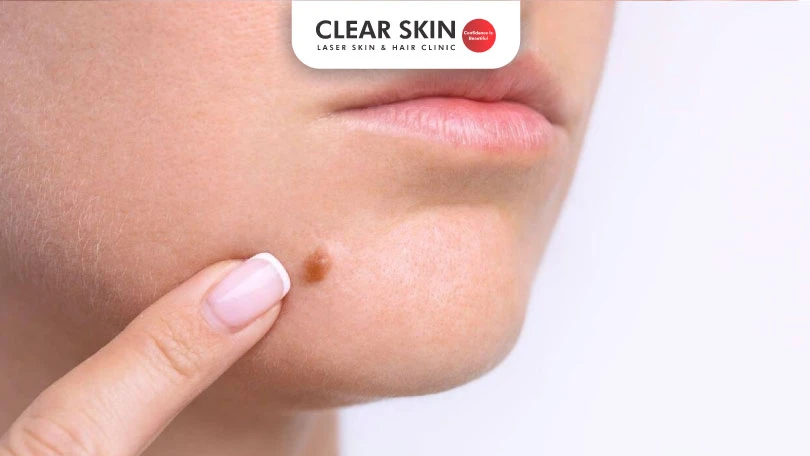Reviewed By:
Updated on: 1st January, 2024
Moles, clusters of pigment-producing cells on the skin, can be treated effectively with laser techniques like radiofrequency and CO2 lasers, minimizing scarring and addressing cosmetic concerns. Consulting a dermatologist ensures personalized treatment based on mole type and skin condition.

Table Of Content
- Can Moles be Removed by Laser?
- When to Consult a Dermatologist?
- Conclusion
Can Moles be Removed by Laser?
Yes, we do have laser treatment to treat Mole. To elaborate on a good line of treatment to remove your Mole, let’s have a look at few important points which we need to think before going for Laser Mole removal treatment. Moles occur on our skin when cells in the skin grow in a cluster instead of being spread throughout the skin. These cells are called as melanocytes which produce a pigment called melanin which gives color to our skin. Moles are the growth of the skin which is usually brown or black. Moles can appear on any parts of the body as a single or in groups or cluster. Moles may be flat or raised. Mostly occurs in early childhood. Moles can be of various types. Few moles are present from birth. Very few numbers of moles increase after the age of 20 to 25, otherwise, no. of moles remains constant.
An expert dermatologist can diagnose exact type of Mole & accordingly, can guide you for best possible treatment. If needed he can advise you to go for biopsy for some uncommon moles. Moles are usually treated for cosmetic reasons. Elevated moles can be treated with radiofrequency & Co2 laser treatments. In this treatment, the excess growth of the mole is cut with electronic desiccation. Some moles have hairs on it. These hairs have to be removed with Radiofrequency followed by complete removal.
The best part of a laser is that it does not lead to more oozing of blood during the procedure. A conventional co2 laser also effectively treats Moles without causing lateral damage to the epidermis which helps to reduce chances of scarring during the procedure. Certain flat, black moles are removed with Laser treatment called Q switched 1064 Nd Yag laser, which effectively targets melanocytes, mole producing cells. Multiple sessions are required to get best possible results. In order to get the best treatment for your mole, one has to diagnose a type of your mole, area to be treated.
We recommend you to consult a board-certified dermatologist near you, who is fully equipped with all these treatment modalities & can guide you best as per your skin requirement.
When to Consult a Dermatologist?
Conclusion
Popular Q&As
Learn how glycolic acid and isotretinoin can help treat acne scars. Dark lips can be caused by sun exposure, dehydration, smoking, or lifestyle factors. Understand the reasons and find expert solutions at Clear Skin Clinic, Pune. Diet plays a good role to decrease melanin in your body.
Tips for Fair and Glowing Skin for Oily Skin Types
Why are my lips dark?
How to Reduce Melanin Production in Skin Naturally?
We Got Your Back! Ask Us Anything On Your Mind!
Reach out to us on
Didn’t Find What You Were Looking?
Please Contact Us.
We are committed not only to treating you, but also educating you.

